Tata: What can the assembly and Welsh Government do?
- Published
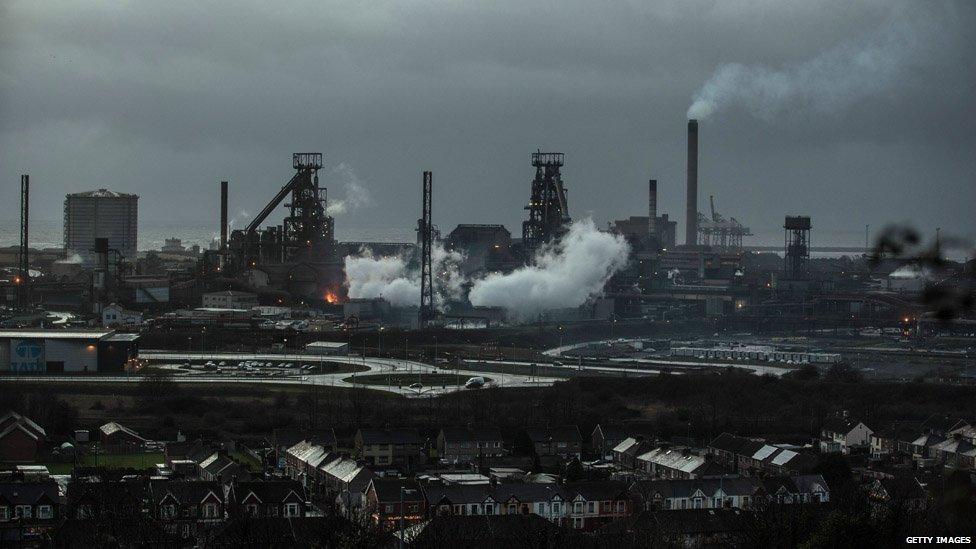
The assembly will reconvene on Monday to discuss the steel crisis, following Tata Steel's announcement it is selling its British business with 6,000 jobs under threat.
It is not the first time the chamber has been recalled during a break, but it comes at the start of an election campaign for the next term.
The decision to come back is so hasty it is happening in the old assembly chamber, Siambr Hywel, because the current one is being refurbished.
Much of the focus in the fall out of the announcement has been on what the UK government should or could do.
But Wales has its own legislature and its own budget, and some say that ministers should be doing more themselves.

Can Welsh Government take a stake or buy up the business?
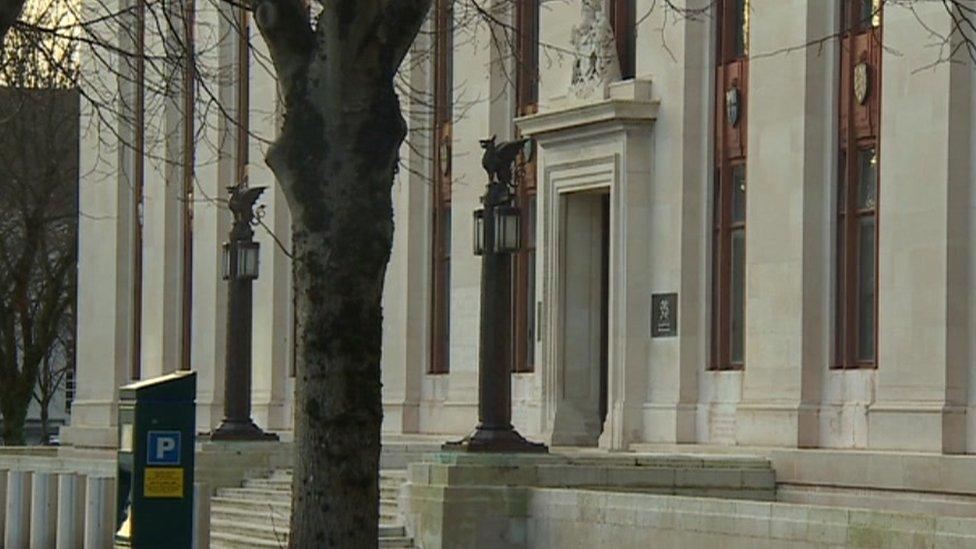
In a joint essay with Gerald Holtham on WalesOnline, external in January, Plaid Cymru's Adam Price suggested the Welsh Government could take a stake in the company - but did not propose they purchase the whole thing.
First Minister Carwyn Jones said his government would support any "viable option" but that Welsh Government did not have the money to buy the plant or keep it going.
It has been suggested a package there for Tata might be available for a new buyer, but it is unclear how much that might be worth.
There have been calls for the UK government to take some kind of temporary stake - an idea backed by Mr Jones, the Liberal Democrats and even the Welsh Conservatives. Mr Jones says the UK government has the resources to do it.
The prime minister has rejected nationalisation, although it has been argued a temporary stake or purchase would not amount to that.

Are there other measures it could take? What about business rates?
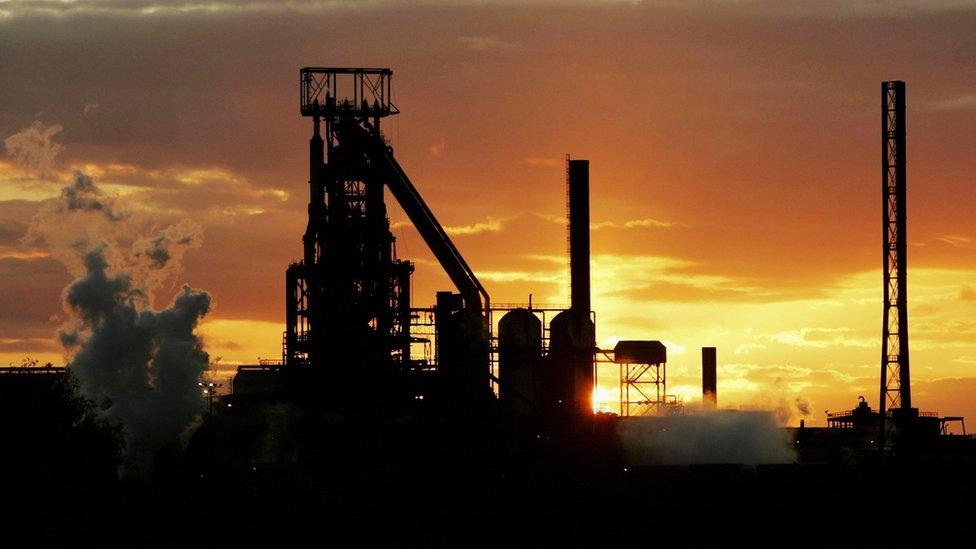
The Welsh Government suggested business rates could be cut to save the steel industry, albeit depending on budget priorities and EU rules.
But in the assembly in January, after 750 jobs cuts at Port Talbot were announced, Mr Jones claimed it would not be enough by itself to solve the steel industry crisis.
Opposition parties have also called for action on the tax. The Liberal Democrats say the Welsh Government should scrap business rates on plant and machinery.
Meanwhile the Tories have said there needs to be business rate relief and minimum steel standards for steel procurement.
The Welsh Government proposed the idea of an enterprise zone for Port Talbot with tax breaks for capital investment, on which the chancellor George Osborne has given the go-ahead.
But that is unlikely to help the town in the short term.
The Welsh Government is also looking at its own procurement policies, external.
But there is a question mark over how much difference that would make, when what the Welsh public sector builds is relatively small.
There are suggestions changes at UK level to make big projects like High Speed 2 and the new Hinkley Point power station use British steel could make a difference.
But that would also be a move for the UK Government.

Is much of this crisis outside of the government's control?

Many of the problems the steel industry is facing - such as the glut of steel on the world market - are beyond the Welsh Government's powers.
There is the issue of whether tariffs on steel could be raised by the EU to deal with cheap products from China.
That is a whole other debate - but matters that concern Europe are not devolved and are handled at UK level.
And the UK government has larger coffers and greater powers to borrow money than the Welsh Government.
UKIP argues that many measures which are needed, such as getting energy prices down or raising tariffs on Chinese steel, can not be taken within EU rules.
But the Britain Stronger In campaign says that is not right, and that the European Commission has 37 anti-dumping measures in place, with 16 of those are specifically targeting Chinese imports.

Is there any point recalling the assembly?
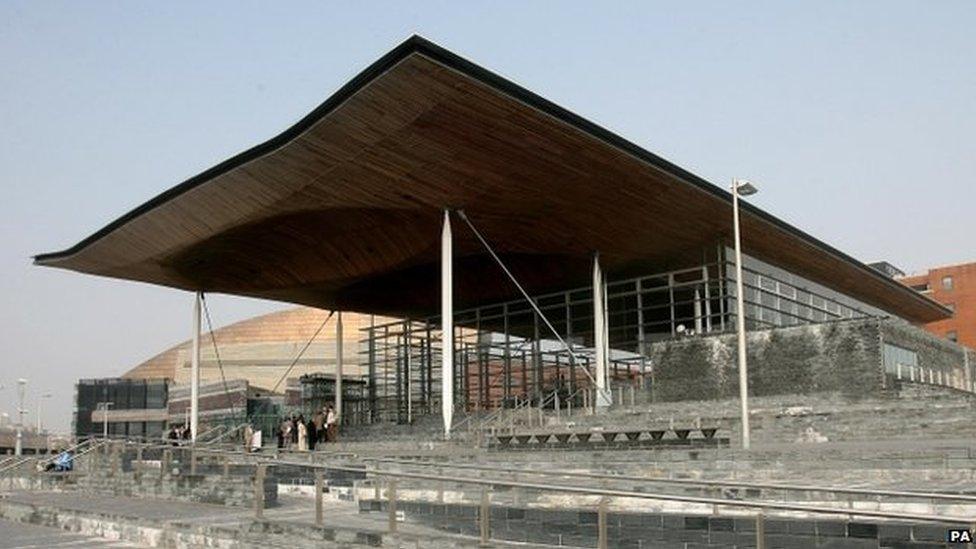
On Monday, there will be a statement from the First Minister in the assembly, and 90 minutes, external for questions.
It will be an opportunity for AMs to say how they feel, and it is a chance for the democratically elected national legislature of Wales - which many are now calling a parliament in all but name - to mark officially how important and grave the situation is.
But is Monday's session really just an opportunity for AMs to grand-stand?
Political commentator Daran Hill said on Twitter that recalling the assembly was "good for sound bites, electioneering & speeches but it's governments not legislatures that can act".
However, one opposition AM stressed the national importance of what was being discussed. She added: "If we don't come back to discuss this, then what do we come back to discuss?"
- Published1 April 2016
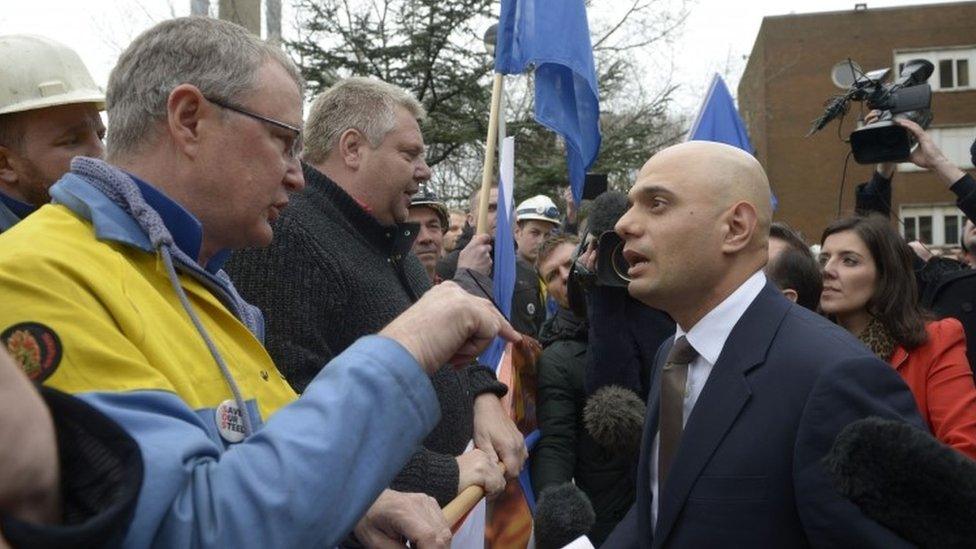
- Published1 April 2016
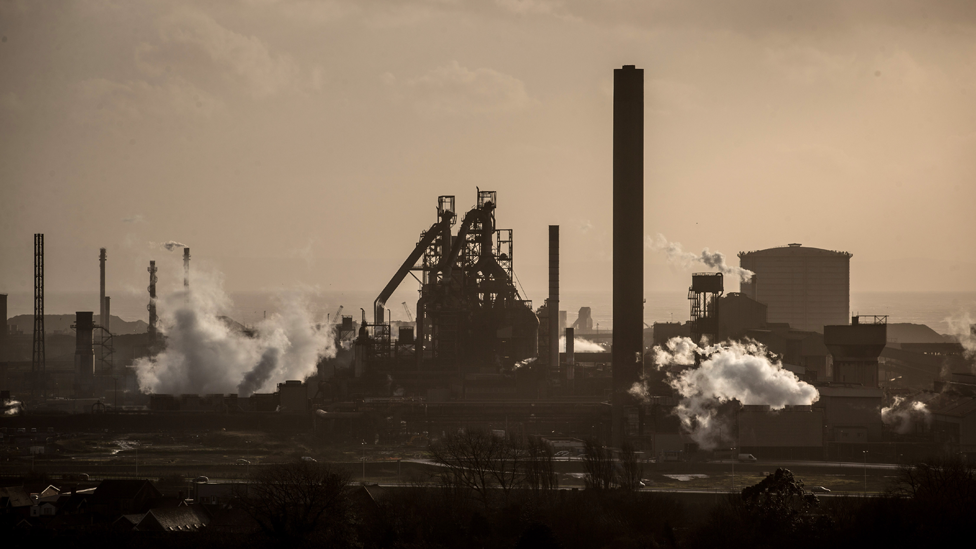
- Published31 March 2016
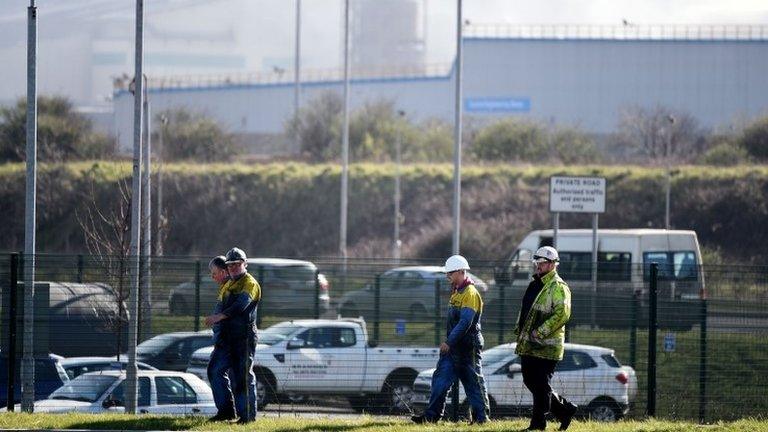
- Published31 March 2016
